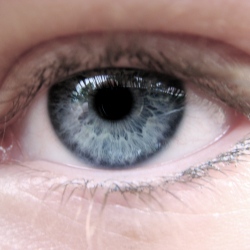
Skilled readers can recognize words at lightning fast speed when they read because the word has been placed in a visual dictionary of sorts, say Georgetown University Medical Center (GUMC) neuroscientists. The visual dictionary idea rebuts the theory that our brain “sounds out” words each time we see them.
This finding, reported at the annual meeting of the Society for Neuroscience, Neuroscience 2011, matters because unraveling how the brain solves the complex task of reading can help in uncovering the brain basis of reading disorders, such as dyslexia, say the scientists.
“One camp of neuroscientists believes that we access both the phonology and the visual perception of a word as we read them and that the area or areas of the brain that do one, also do the other, but our study proves this isn’t the case,” says the study’s lead investigator, Laurie Glezer, Ph.D., a postdoctoral research fellow. She works in the Laboratory for Computational Cognitive Neuroscience at GUMC, led by Maximilian Riesenhuber, Ph.D., who is a co-author.
“What we found is that once we’ve learned a word, it is placed in a purely visual dictionary in the brain. Having a purely visual representation allows for the fast and efficient word recognition we see in skilled readers,” she says. “This study is the first demonstration of that concept.”
Glezer says that these findings might help explain why people with dyslexia have slower, more labored reading. “It could be that in dyslexia, because of phonological processing problems, these individuals are not ever able to develop a finely tuned visual representation of the words they have encountered before,” she says. “They can’t take advantage of the fast processing of words using this dictionary.”
Glezer and her co-authors tested word recognition in 12 volunteers using fMRI. They
were able to see that words that are different, but sound the same, like “hare” and “hair” activate different neurons, akin to accessing different entries in a dictionary’s catalogue. “If the sounds of the word had influence in this part of the brain we would expect to see that they activate the same or similar neurons, but this was not the case, ‘hair’ and ‘hare’ looked just as different as “hair” and “soup”. This suggests that all we use is the visual information of a word and not the sounds.”
